CORRECTED: This piece was corrected on Oct. 16 at 8:20 p.m. CDT. It previously stated that Imam Ossama Bahloul spoke on the Israel-Hamas War, but he spoke on the Israel-Palestine conflict as a whole. It was further corrected to more accurately portray a quote by Israeli Defense Minister Yoav Gallant.
UPDATED: This article was updated on Oct. 16 at 8:20 p.m. CDT to include further details on water supply in Gaza.
Vanderbilt’s chapter of Students for Justice in Palestine, formerly known as Dores in Solidarity with Palestine, and the Muslim Students Association co-hosted a community prayer on Oct. 13 to mourn the Palestinian lives lost since Hamas’s Oct. 7 attacks — which is up to 2,600 as of publication — and in Israeli-Palestinian conflicts since the “Nakba” (catastrophe), or 1948 War.
The primary speakers at the event were religious community members from the Islamic Center of Nashville. Founded in 1978, ICN is one of Tennessee’s oldest mosques.
“Today, we stand here together as one to remember our brothers and sisters and the harsh realities they have been facing for not only the past week but also for the past 100 years,” the ICN representative said.
The representative further noted to the crowd of approximately 70 people the severity of the humanitarian crisis unfolding in Gaza. The United Nations estimates that fuel for hospital emergency generators in Gaza will run out within two days, endangering thousands of patients. The U.N. also recently warned that the exodus of 1.1 million Palestinians from Gaza — as advised by the Israel Defense Forces — would be “impossible without devastating humanitarian consequences.” Israel announced it would resume water supply to Gaza on Oct. 15 following U.S. pressure, but Hamas said on Oct. 16 that water had not been turned back on. Israel claims the water is resumed in one area of south Gaza.
Following this introduction, another ICN community member recited prayer verses in Arabic for the lives lost.
Imam Ossama Bahloul, the resident scholar at ICN, then gave his perspective on the Israel-Palestine conflict as a whole. He specifically mentioned Israeli Defense Minister Yoav Gallant’s statement that the IDF is “fighting against human animals.” There is currently debate about whether Gallant used this phrase in reference to Hamas militants or Palestinians as a whole due to Gallant’s subsequent remarks about denying Gazans basic needs.
“We can gather here and talk, but imagine if someone were to come to you and say you are not human. How would you act?” Bahloul said. “I care about the life of everyone, Muslims and Jews and others. Out of decency, we should see each other as brothers and sisters.”
Bahloul also criticized Israel for its 56-year occupation of Gaza, West Bank and East Jerusalem, which the U.N. has labeled as a violation of international law. Beyond alleged occupation violations, Israel has been criticized for allegedly using white phosphorus — which is a war crime if used in densely populated areas — in its aerial bombings.
“I always say we should all respect the law. The law can be a tool for all of us to be united and to act in a certain way,” Bahloul said.
Bahloul concluded with a message of hope for peaceful coexistence between people of all religions. He called on the international community to condemn the severity of Israel’s retaliation in Gaza, comparing it to how many Muslims denounced al-Qaeda’s 9/11 attacks. He expressed frustration with an alleged lack of international regard for Palestinians.
“We can stand against any aggression of any kind. We [Muslims] spoke before against the al-Qaeda attack in September; although it was carried out by Muslims, I said it was wrong,” Bahloul said. “I expect the entire community to stand with the people of Gaza. We should not allow this aggression to continue.”
Bahloul then asked the crowd for a moment of silence for the victims, after which the Maghrib prayer — a daily Muslim prayer performed at sunset — was held on Wilson Lawn.
First-year Abigail Tadesse expressed appreciation for the sense of “community and solace” created by SJP and MSA’s prayer.
“The past few days have been very saddening and that has only been amplified by the university ignoring the plight of the Palestinian people,” Tadesse said. “It was nice that there was a place on campus to feel heard and remember those who lost their lives in Palestine.”

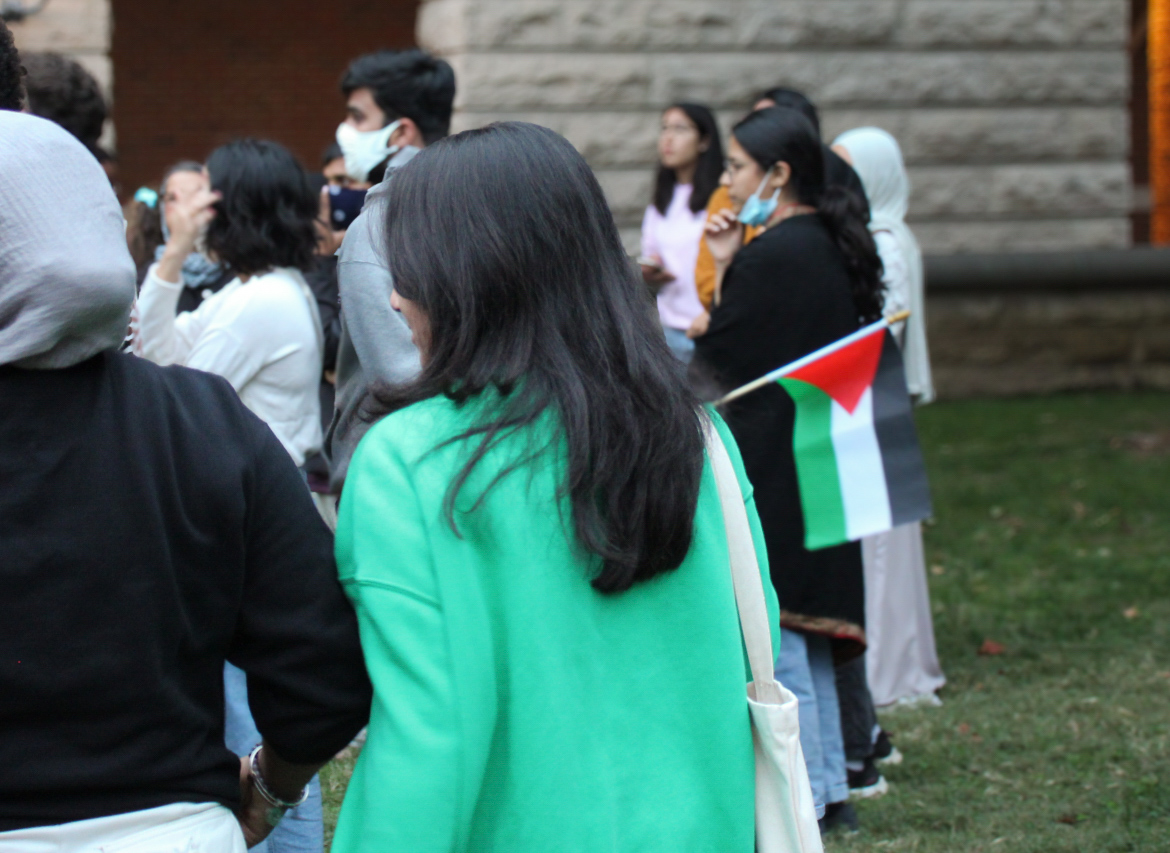

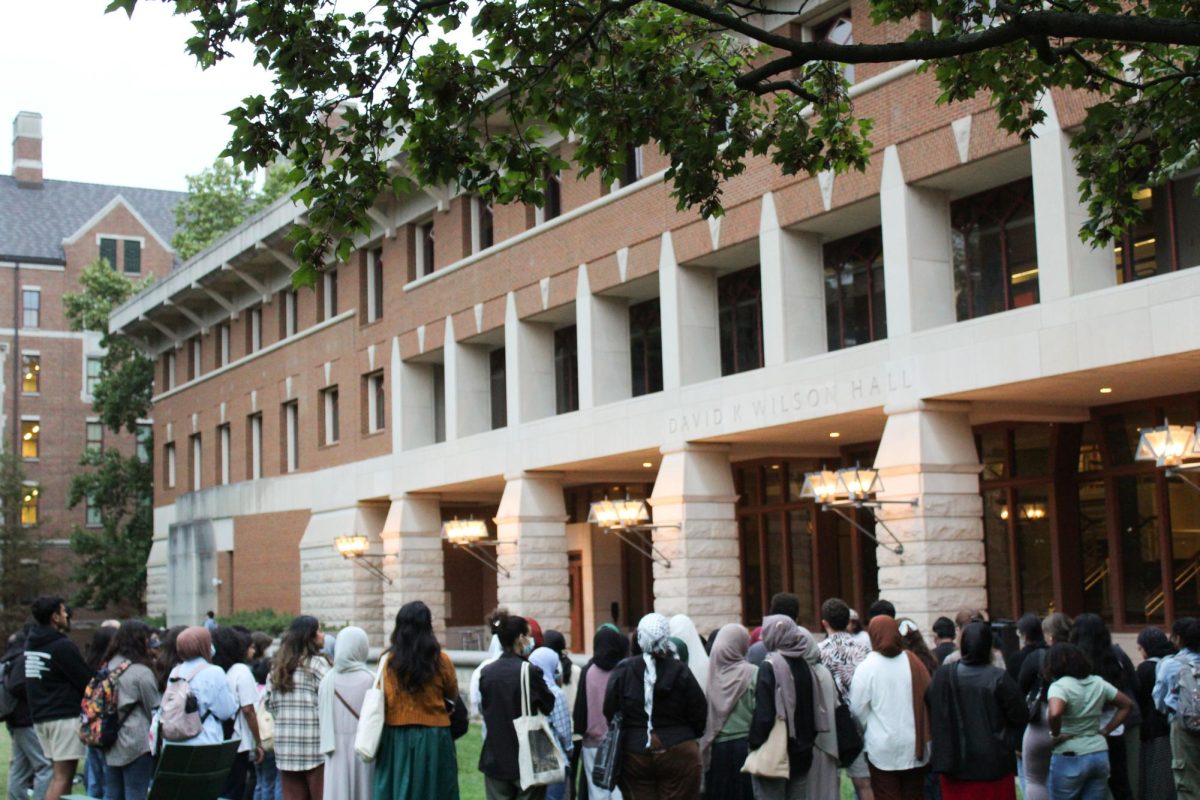
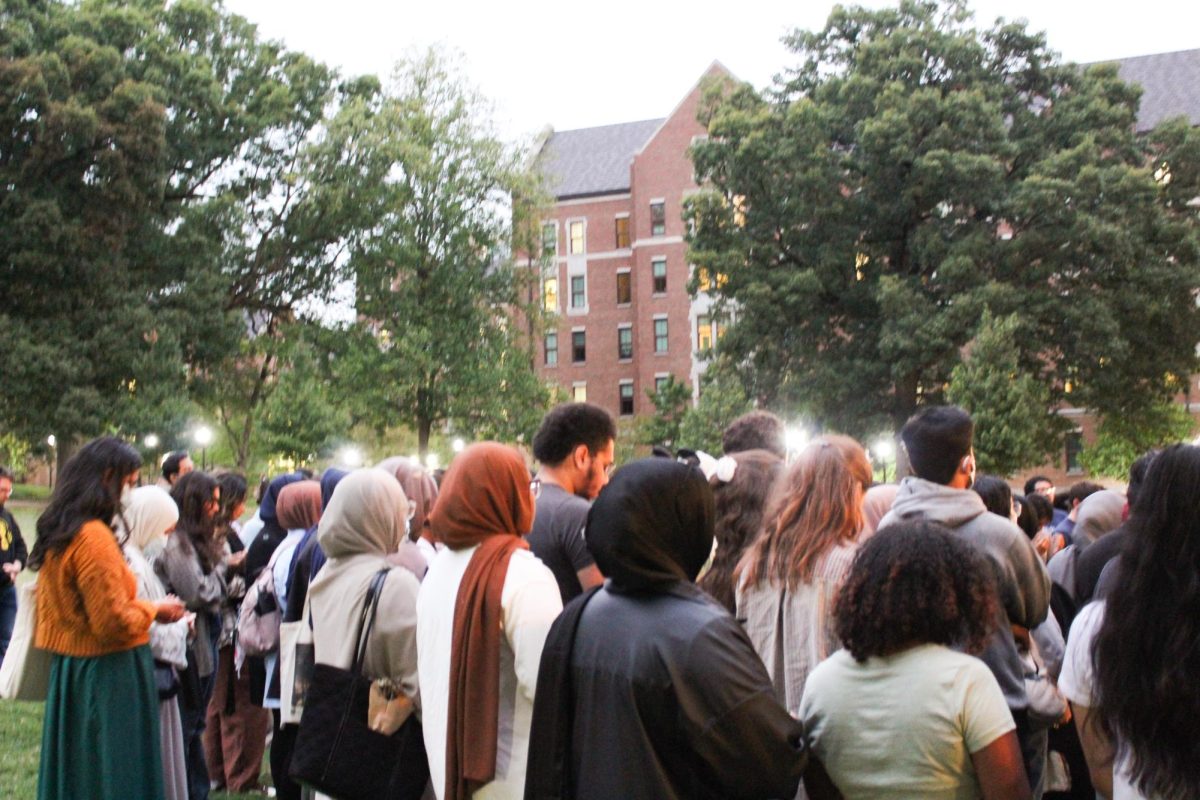

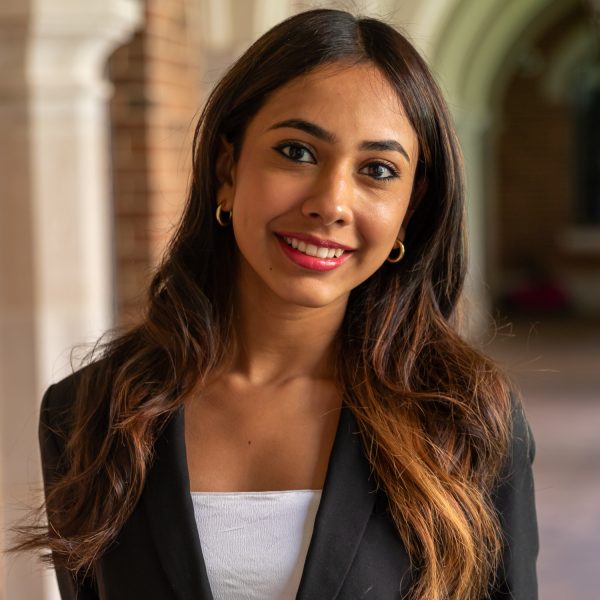
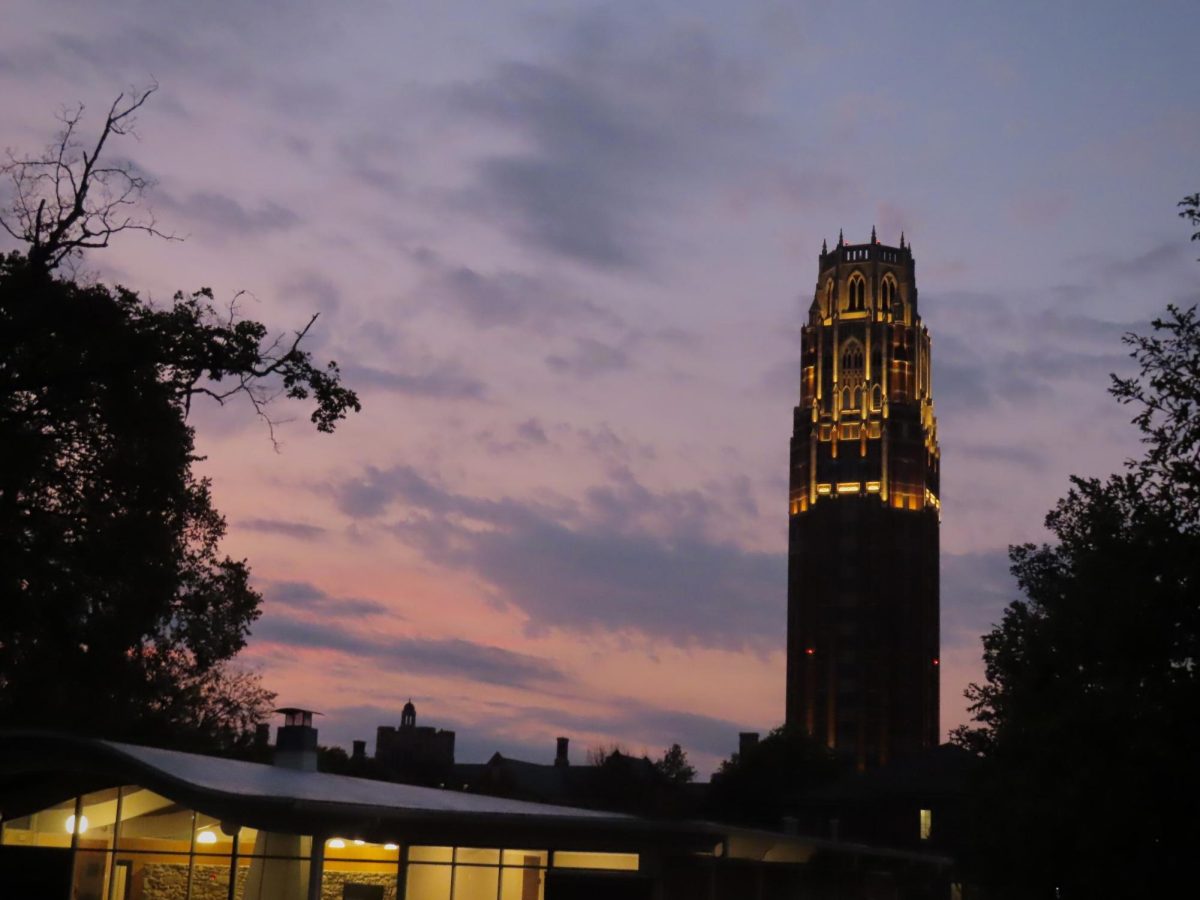
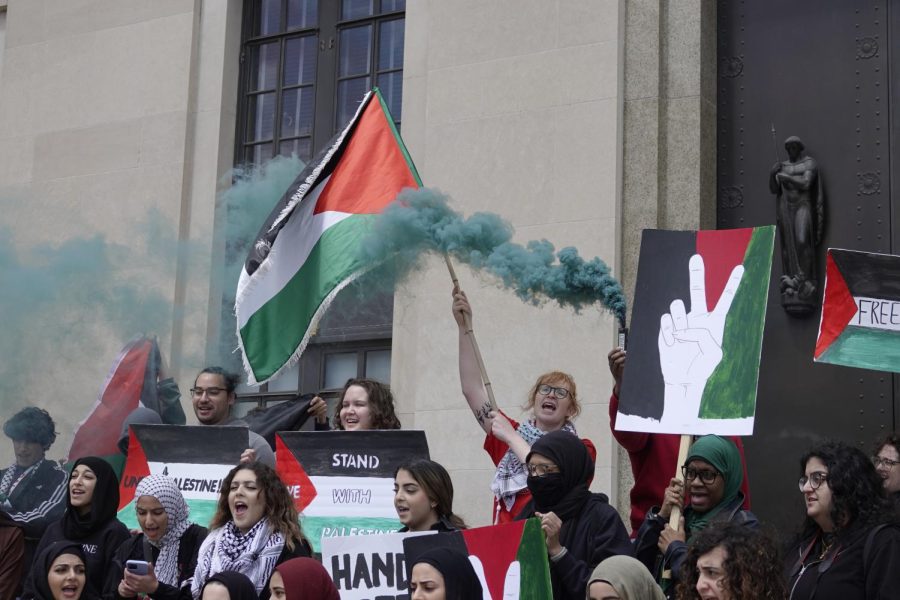
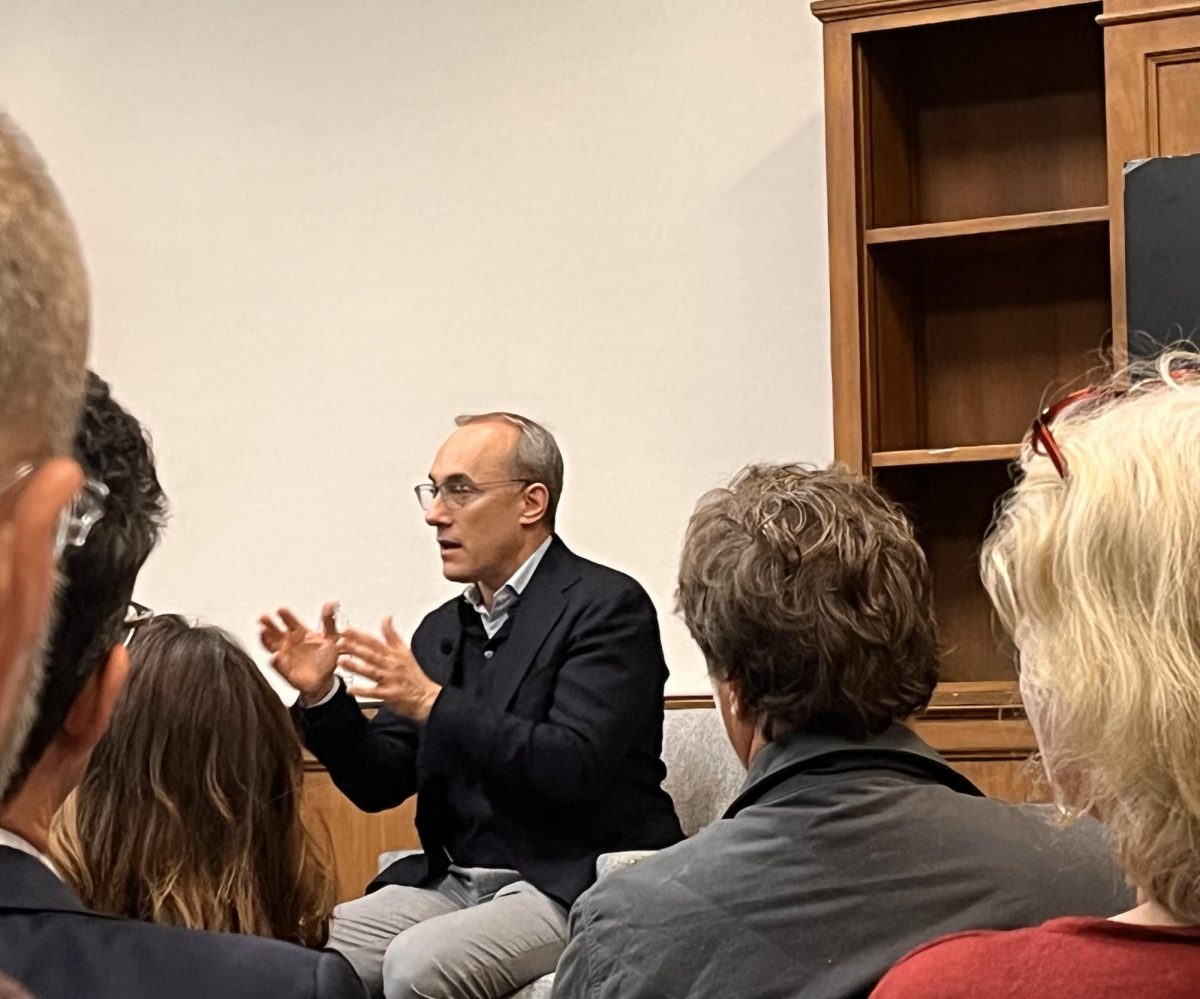
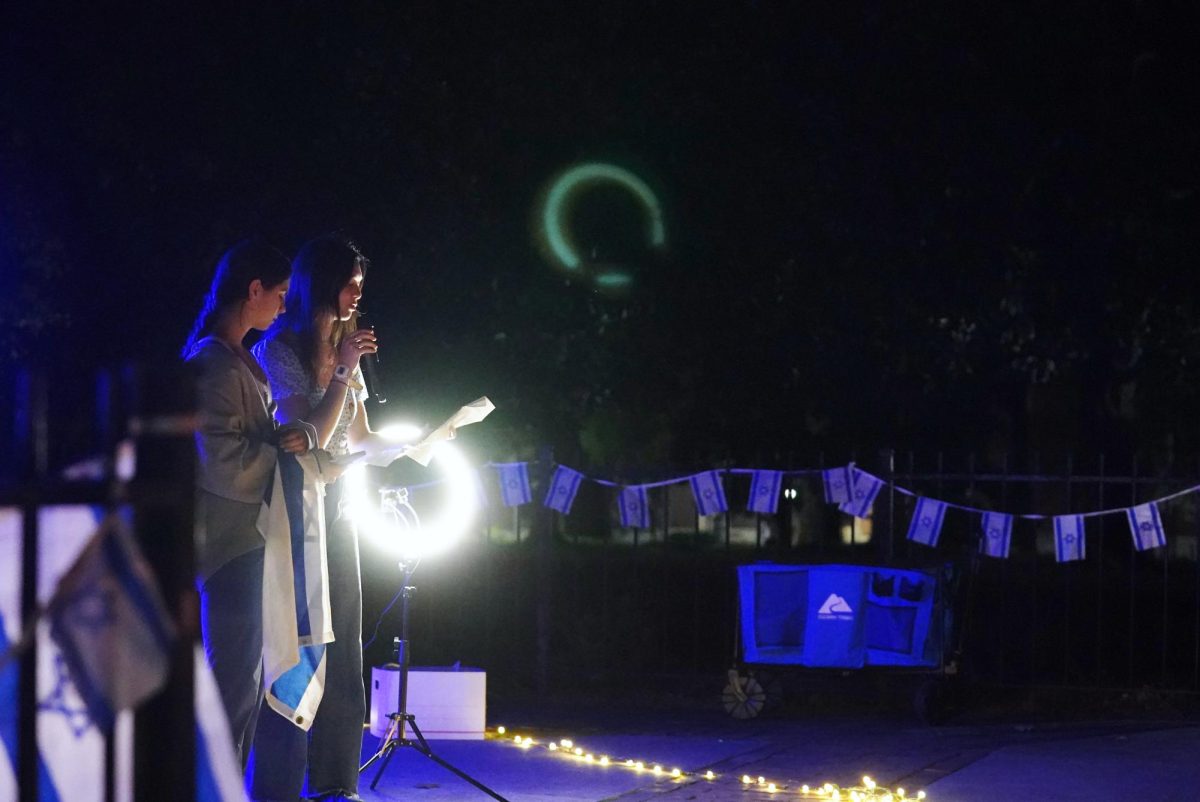
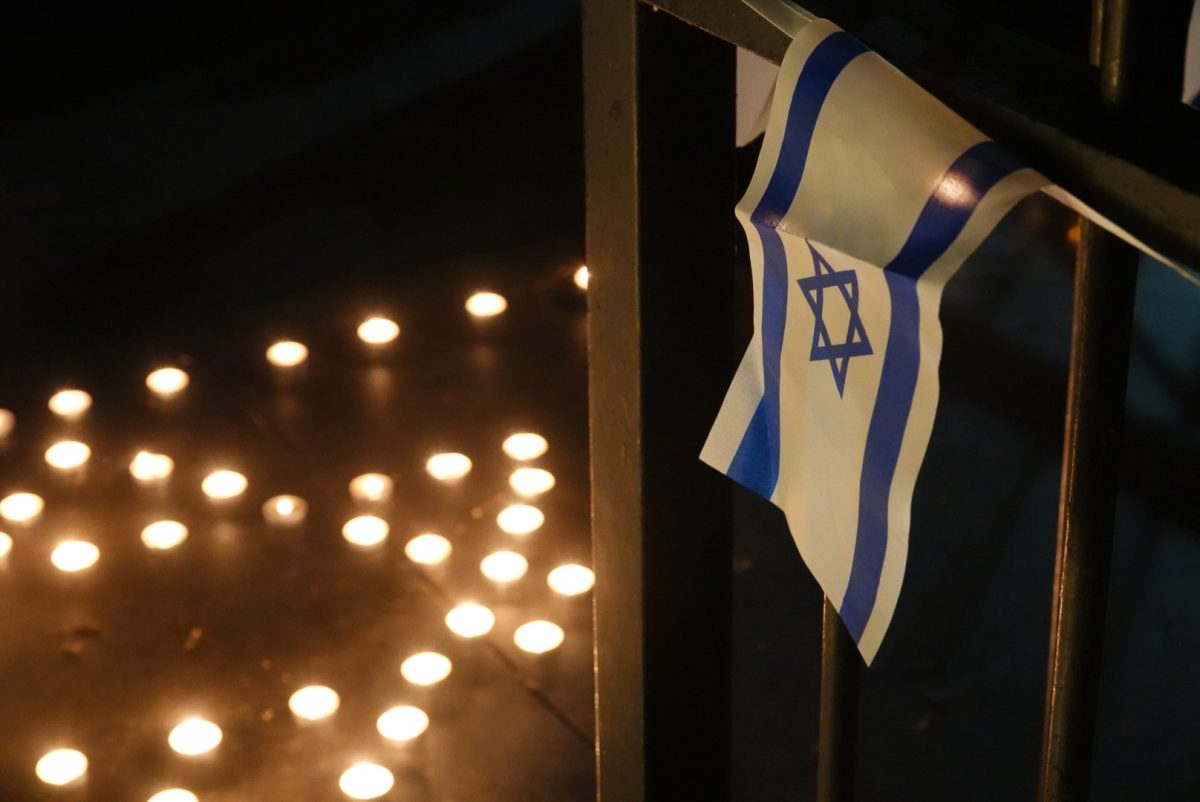
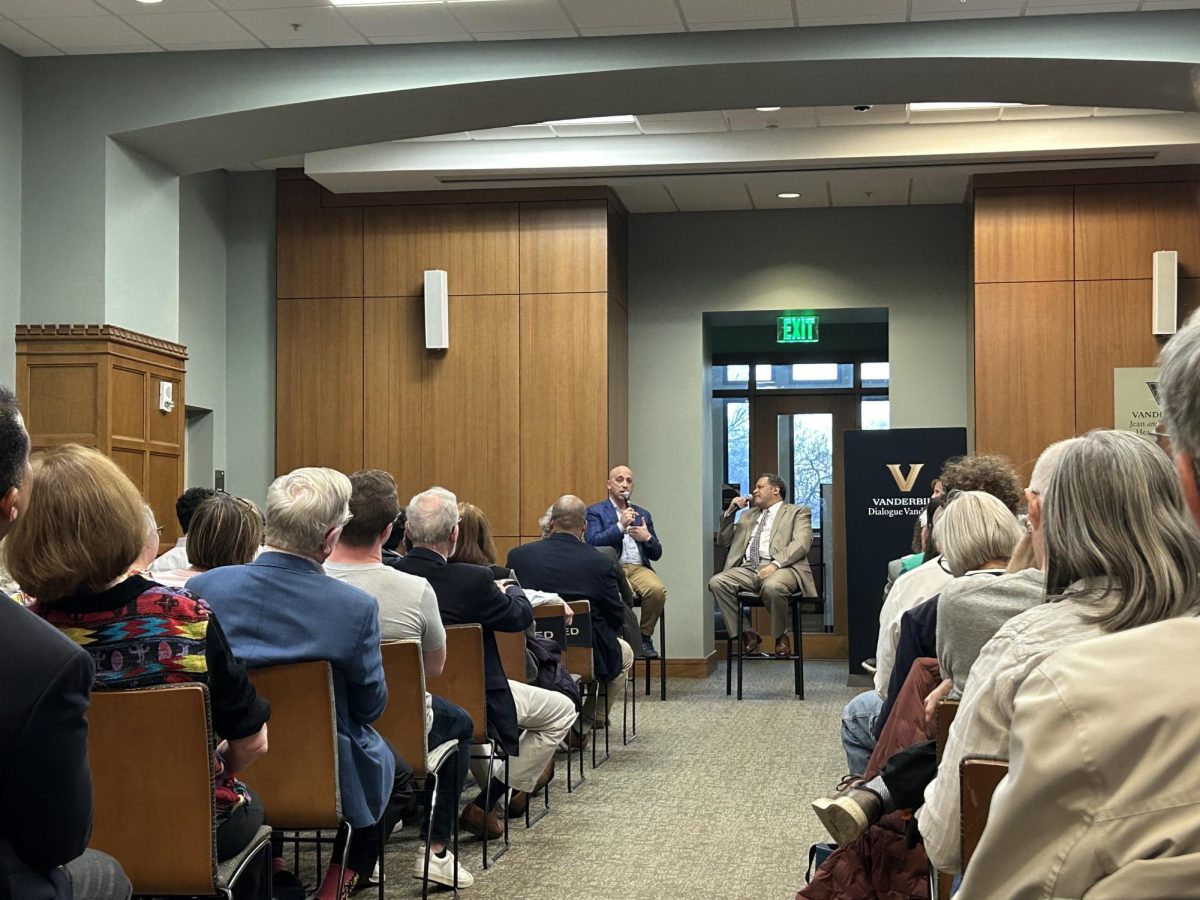
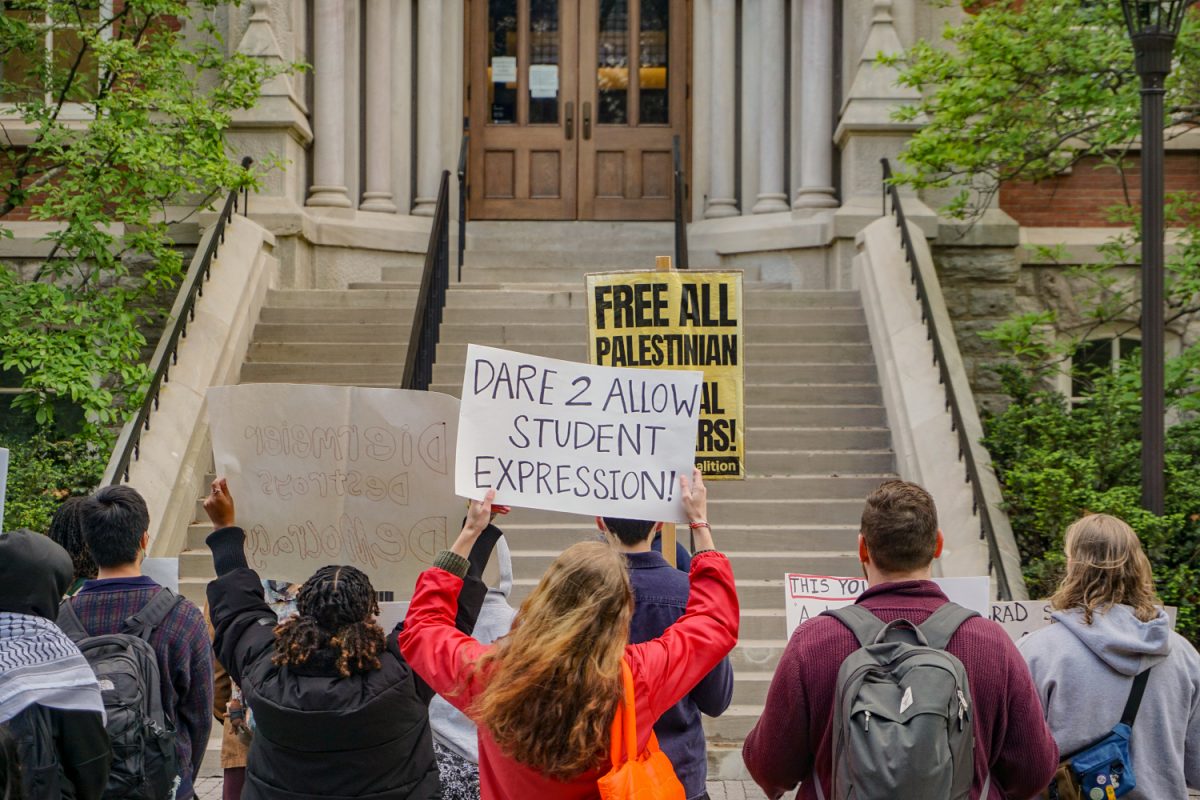
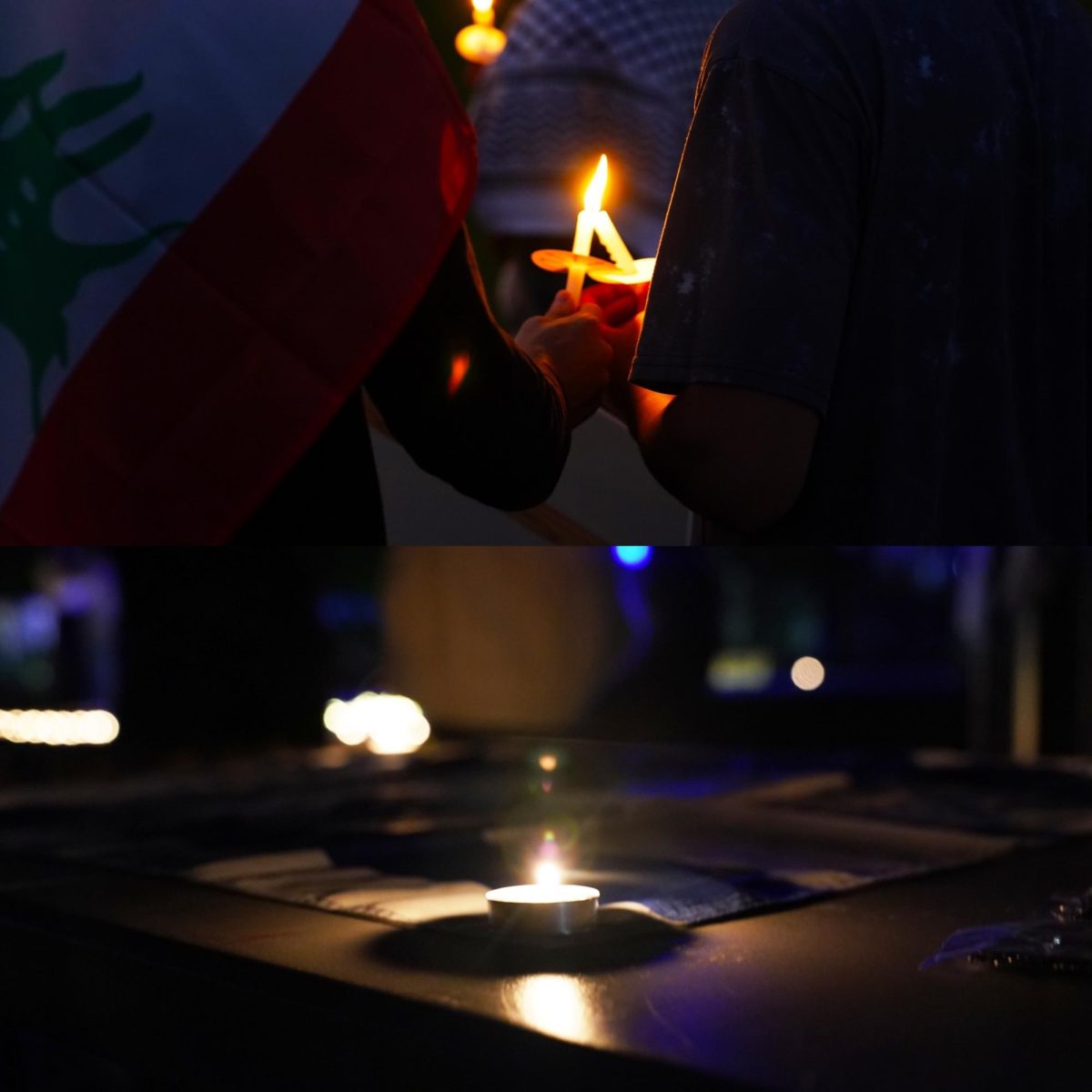
Vandy Feminist • Oct 20, 2023 at 8:13 am CDT
Palestine stands for diversity, equity and inclusion. Palestine stands for gay rights. Palenstine stands for peace. Palenstine stands for clean energy. Stand with Palestine.
Queer and proud • Nov 29, 2023 at 5:09 pm CST
Gay rights?? ???? you need to educate yourself on what majority of Palestinians feel about gay rights.
Marina • Oct 17, 2023 at 12:42 pm CDT
Free Palestine